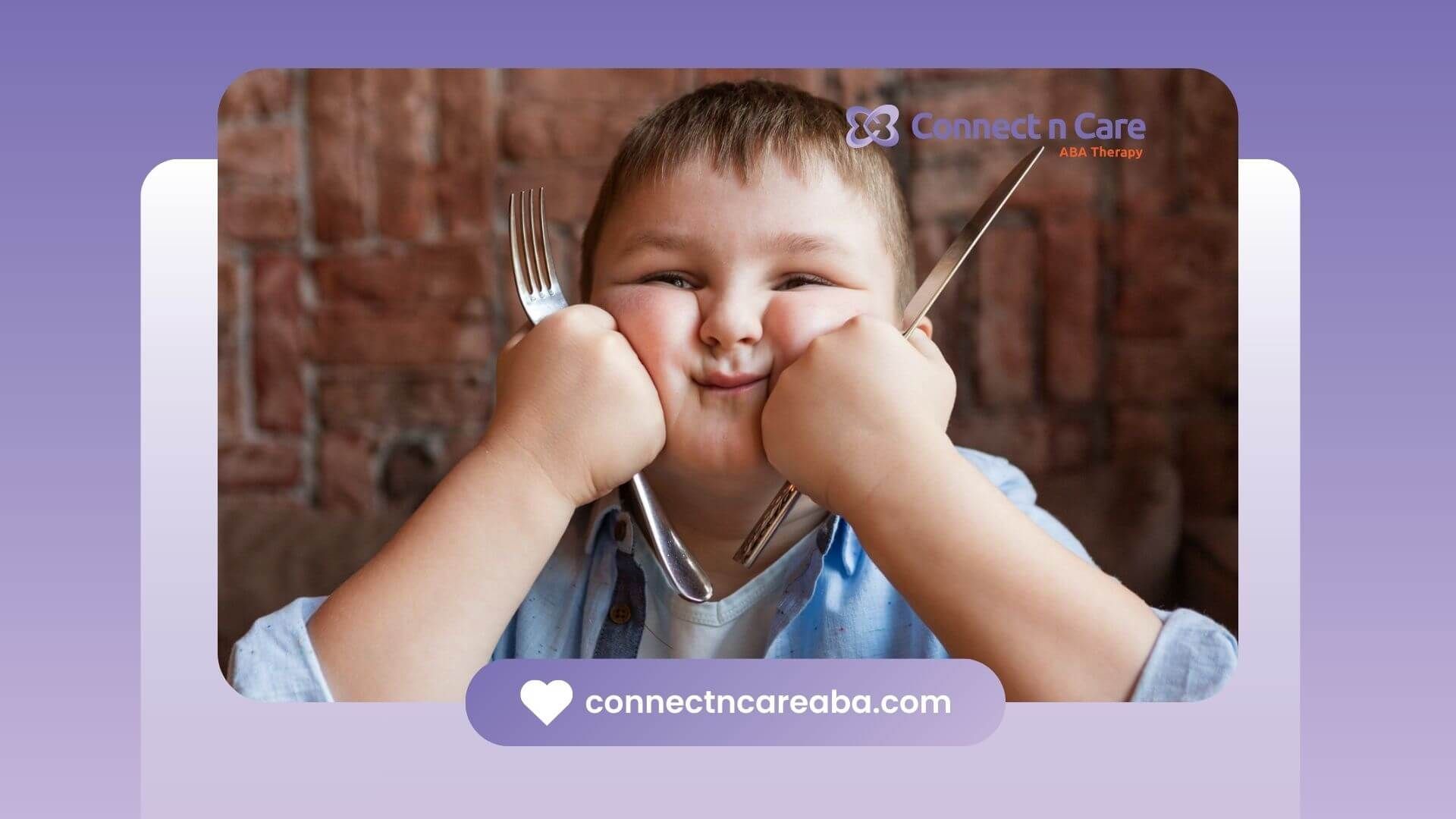In my work as an ABA therapist in Charlotte, NC, I’ve seen how nonverbal connection can sometimes say more than words. For many autistic children, the quiet companionship of a cat offers just that—a calming presence, a consistent friend, and a way to explore emotional connection in a low-pressure way.
If you’ve been wondering whether a pet could be a good match for your child, this guide will walk you through the best cat breeds for children on the autism spectrum.
Top Cat Breeds for Autistic Children to Consider
Choosing a cat for your child can really help their emotional health. Some cat breeds are known for being friendly and easy to get along with. They are great at providing comfort and can connect well with kids, especially those on the autism spectrum.
Let's look at what makes these cats wonderful friends for children with autism.
1. Maine Coon - Known for their Gentle and Friendly Nature
Maine Coons are often called "gentle giants." This makes them some of the best cats for children with autism. They are large and calm. These cats form deep bonds with families. They have a tolerant nature and can interact well with children who have sensory sensitivities. Maine Coons do best in homes where there is affection and calm play.
Children showing autism symptoms can benefit from Maine Coons’ gentle behavior. These cats give a sense of stability without being too demanding. This is great for kids who are sensitive to sensory experiences. Their soft fur is soothing, which can help during times of sensory overload.
Maine Coons have playful personalities that encourage kids to engage. This helps promote social skills through fun activities like interactive games. Their laid-back and loving nature makes them a great choice for families looking for companionship and therapy.
2. Siamese - Highly Social and Vocal Companions
Siamese cats are famous for their striking blue eyes and lively personalities. They are very friendly and can be great companions for people. This is especially true for children on the autism spectrum, who might find communication difficult. Siamese cats offer a way to connect through interaction.
These talkative cats build strong bonds with their families. They help encourage social skills in children. When kids watch a Siamese cat's actions, like their sounds or body language, they learn to understand non-verbal communication. Siamese love to play interactive games, which helps prevent feelings of isolation.
At first, their chatter might feel a bit much, but they can learn to be quieter as well. Siamese cats are smart and can adapt to the needs of children, making them excellent sources of comfort and joy.
3. Ragdoll - Calm and Affectionate Behavior
Ragdolls are known for their gentle nature and loving personalities. This makes them a popular choice for autistic kids. They are easy to cuddle, which creates calm moments during times of sensory overload.
These rag dolls love being around people. They provide comfort through their steady companionship. When they are held and stroked, children feel a strong connection, giving them important emotional support. Their low-energy nature is perfect for routines that need predictability and peace.
Ragdolls are also very patient when being handled. This makes them perfect for children who enjoy consistent tactile experiences. Their calm presence helps create bonding moments that enrich the lives of children who need stability.
4. British Shorthair - Independent yet Loving
British Shorthairs are known for being independent but also loving. This makes them a great fit for kids with autism. These cats show affection without being needy. They respect a child's need for space while always being there for them.
Their soft and thick fur feels nice to touch. This can help calm kids who are sensitive to sensory input. British Shorthairs create strong bonds without adding too much energy to the home. They are a good choice for families with different energy levels.
These cats do not require much care and fit well into busy families. They help create a peaceful connection between the cat and child. With their patient nature, British Shorthairs blend into daily routines and provide steady companionship over time.
5. Siberian - Playful and Energetic with Hypoallergenic Fur
Siberian cats are fun and have special fur that is less likely to cause allergic reactions. They are great for kids who are sensitive to allergies. They are not totally hypoallergenic, but they have low levels of the Fel d 1 protein, which helps reduce allergies.
Siberians are known for their playful nature. They have gentle energy that fits well in calm settings, making them interesting companions for children during fun and healing activities. Playing with these cats can help kids improve their communication skills, bringing everyone closer together.
Their friendly personalities are perfect for homes that need a mix of love and a bit of independence. Siberians form strong bonds with their families while staying flexible. This makes them lively and exciting additions to family life.
Understanding the Benefits of Cats for Autistic Children
The special connection between cats and autistic children provides comfort and stability. Cats give loving company that helps children with autism symptoms feel safe in their daily lives.
Gently petting a cat or watching how it behaves can help build emotional ties and reduce stress. This companionship can improve quality of life. Cats are more than just pets; they are real partners in emotional support.
Enhancing Communication Skills
Cats can help autistic children improve their communication skills. They do this by filling emotional and social gaps. When kids watch a cat's non-verbal signs, like purring, they learn to read body language better. This helps them understand social situations more clearly.
Tasks that involve interacting with cats, such as feeding, grooming, or gentle petting, create important chances for responsibility. Over time, these activities help kids show empathy and compassion. They also promote regular interactions that help children develop social skills.
The loving nature of cats creates a calm space where children can talk or tell stories without fear of being judged. This setting allows kids with autism spectrum disorder to express their feelings confidently.
Providing Comfort and Reducing Anxiety
Cats are great at providing comfort. They help reduce anxiety in children, especially those with autism. The soothing sound of their purrs and the feel of their soft fur offer relief during stressful moments or when kids experience sensory overload.
Children find a safe place to escape during overwhelming times. The calming presence of a cat helps them manage their emotions and stay calm. This support can have a positive effect on daily life.
With quiet cuddles or simple companionship, cats help reduce emotional strain. They build trust with autistic individuals. The love they give is unconditional, helping kids become more resilient against stress-related symptoms.
Practical Considerations When Choosing a Cat
Choosing the best cat for your family means thinking about personality, how well they fit in, and how much care they need. You should pay attention to how your child responds to different cat breeds and their sensory sensitivities. This helps create a good relationship between them.
Look for hypoallergenic cats and those that can easily adjust to your family. By carefully looking at these factors, you can find the right feline friend for your autistic child. Being thoughtful during this choice can lead to happy times for both your child and the cat.
Assessing Temperament and Compatibility
Choosing the right cat involves looking at how well the cat fits with you. Pay attention to breeds like Maine Coons or Ragdolls. They are known for being gentle. Cats that like calm homes are a good fit for low-energy living.
Talking to experienced breeders or shelter staff can help you find the right cat. Their advice helps ensure that the cat behaves calmly and confidently around kids.
Matching a cat's energy with your family's needs can make for a strong bond. Taking your time with introductions helps keep everyone safe while they get to know each other.
Maintenance and Care Requirements
Understanding basic care needs is key for successful pet ownership. Cats like British Shorthairs or Siberians are independent. They do well with less grooming and fewer trips to the veterinarian.
When people have busy lives, smart care habits are important. Balancing kids’ activities while keeping good feelings helps family love last. It does this without adding extra stress.
Structured meetings help find simple ways to feed cats and keep them clean. When picking a breed that is good for family health, practical methods work best without complicated tasks.
Conclusion
Choosing the right cat for your autistic child isn’t just about finding a pet—it’s about creating a calm, consistent, and supportive relationship that can help your child feel safe, understood, and connected. Whether your child is soothed by a gentle purr, learns responsibility through routine, or simply finds joy in having a soft companion nearby, the right cat can make a meaningful difference in their emotional world.
But remember, while a pet can be a powerful addition to your home, they’re not a replacement for professional support. At Connect N Care ABA, we work closely with families across Charlotte, NC to build individualized therapy programs that support real progress—both in the therapy room and at home.
If your child is drawn to animals, enjoys sensory-rich experiences, or just needs help building confidence and independence, we’re here to help. We’ll work with you to understand your child’s unique needs, incorporate their interests into therapy, and help them build skills that last a lifetime.
Let’s partner together to help your child grow with joy, confidence, and care.
Reach out today to learn more about our
ABA therapy services or to schedule a consultation with our compassionate team.
Frequently Asked Questions
How do I introduce a new cat to my autistic child?
To help your autistic child meet a new cat, start by making the space calm. Let your child watch the cat from afar at first. Slowly, you can bring them closer together. Use treats as a reward to promote gentle interactions. This way, both your child and the cat will feel safe.
What should I consider when choosing a cat for my child with autism?
When picking a cat for your child with autism, think about the cat's temperament, energy level, and grooming needs. Choose breeds that are calm and friendly. They should be able to provide good companionship and be gentle and patient with your child.
Sources:
- https://www.autismparentingmagazine.com/cats-help-children-with-autism/
- https://pubmed.ncbi.nlm.nih.gov/33290937/
- https://habri.org/pressroom/20201209/
- https://showme.missouri.edu/2021/cats-less-stressed-after-adoption-by-families-with-children-with-autism-mu-study-finds/
- https://journals.sagepub.com/doi/abs/10.1177/14733250231151946









